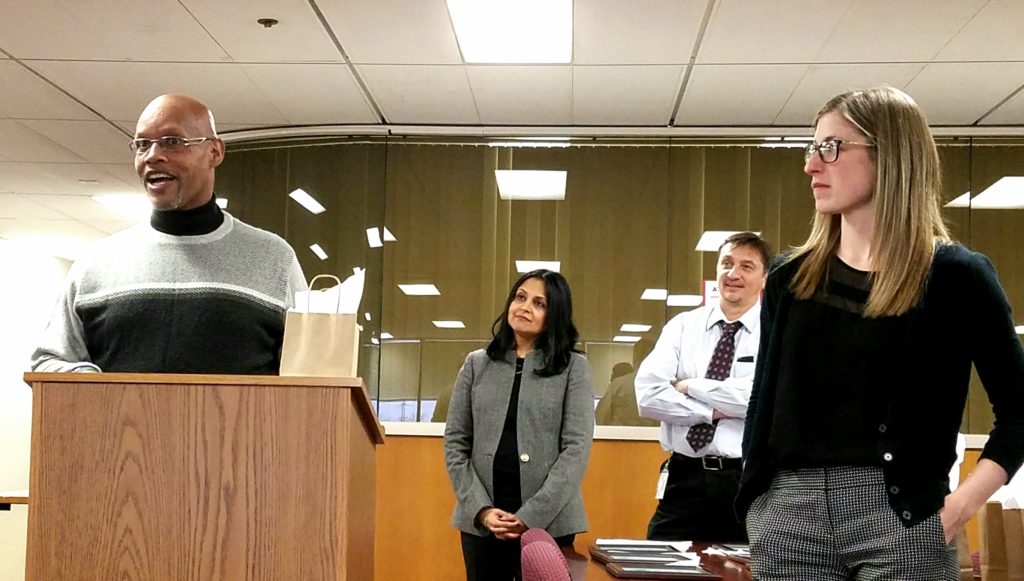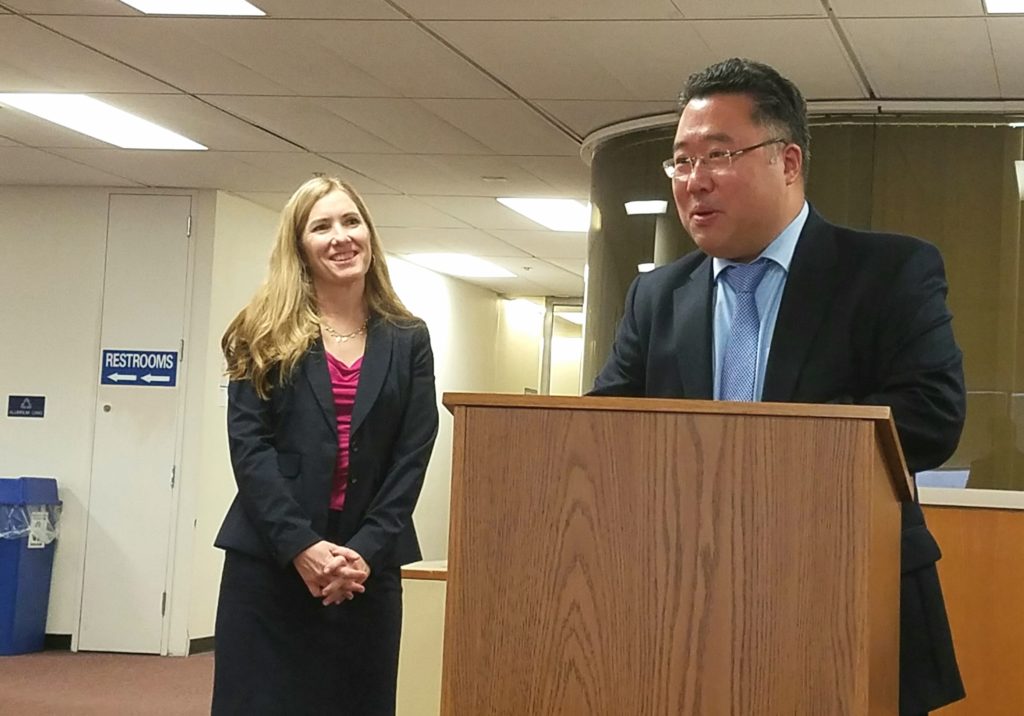Access to Community Treatment Court Celebrates Third Graduation
by Ali Abid, Senior Criminal Justice Policy Analyst at Chicago Appleseed
On December 2, 2016, Cook County’s Access to Community Treatment (ACT) Court achieved a major milestone by celebrating its third graduation for individuals who successfully completed the problem-solving court program.
In total, 10 individuals were recognized for their efforts, and four graduates shared powerful remarks about their experience before, during, and after completing the ACT Court program.

Graduates shared ways they are now giving back to their communities. Nearly all of the graduates remarked that, prior to completing the ACT Court program, they had been embroiled in a cycle of committing crimes to support their drug use, leading to arrest, incarceration, and re-entry into challenging communities. To be eligible for the ACT Court, participants had to have been previously convicted of a nonviolent felony, been to prison at least once before, and have a documented substance use or abuse treatment need. The requirement that ACT participants previously have served a prison sentence ensures that the program targets individuals at high risk of being sentenced to prison in their current case. As an Adult Redeploy Illinois justice reinvestment program, the ACT Court is required to divert prison-bound individuals into community-based services.
Despite their best efforts and a deep desire to change, graduates explained that they had not been able to break the cycle of addiction and incarceration before the ACT Court program. They attributed their current success to the structure and support of the ACT Court, which lasts a minimum of twelve months and combines community-based treatment services and accountability through frequent judicial contact.

Chicago Appleseed is proud to have been instrumental in planning, implementing, and managing the ACT Court for more than three years.
